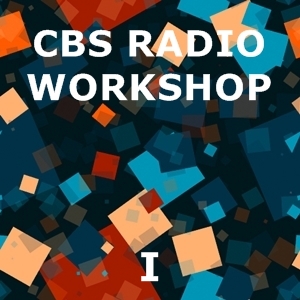I Have Three Heads
Original script: Mort Goldberg
Originally aired: 26 May 1957
Plot synopsis: A pair of tape recorders discuss the techniques of recording and editing for radio. (Yes, really!)
Favourite line: 'My boy, never let it be said we tape machines give any external evidence of the anxiety, the pain, the shock of having a sharp razor blade passed across us a dozen times an hour.'
Review: No other OTR series would have produced quite such a bizarre 'story' - one which features two anthropomorphized tape recorders engaged in animated conversation about their 'lives' as recording and editing machines. It should be remembered that in the early days of radio (from the 1920s up until the 1950s), the majority of programmes were broadcast live - so an episode about the production of recorded material for broadcast was dealing with what was, at the time, cutting-edge technology. Yet the question any modern listener will undoubtedly ask is: what value is there in listening to such an episode today, since tape recorders are now completely outdated? In fact, the episode remains surprisingly engaging, as although the tools of the editor's trade may have changed dramatically since the 1950s (digital having largely replaced analogue), many of the same issues still arise - for example, what responsibility do editors have to present a truthful representation of what is said in an interview or a conversation, even when having the power to edit recordings in whatever ways they choose? There is also an enjoyable section at the end in which 'Tea for Two' is played backwards and forwards to demonstrate the possibilities of modern tape machines, which was clearly intended to amaze and enthral the episode's audience. All in all, an engrossing piece.
Rating: * * * *
I Was the Duke
Originally aired: 9 December 1956
Plot synopsis: An interview with a real-life 'juvenile delinquent'.
Favourite line: 'This is the way I looked at it, I mean. Like, there used to be some kids, you know what I mean, they in my block, see, and they had something, and I didn't have it, you know what I mean? So I used to take it from them. Well, they could go home and get more, you see? So, I mean, did it hurt 'em any? No, it didn’t hurt 'em, it taught 'em something, see - to stay away from me when they had something, because if they did, I'd take it, you know what I mean?'
Review: Many will be surprised, perhaps even shocked, by the language in this episode, since it contains actual swearing! A number of times, for example, the young criminal being interviewed describes someone as an 'asshole', and at one point mentions that he once kicked a man 'in the nuts' (and there is even slightly stronger language than this). I don't believe I've ever encountered another OTR programme that includes such language - and precious few films or TV programmes from the period either - so the episode certainly stands out for this reason alone, if no other. How did the producers get away with this in 1956? Still, what makes the episode truly remarkable is the candid nature of the interviewee's revelations. He is a convicted petty criminal and is completely frank about his dismal upbringing (by a stepfather who beat him and a mother who was frequently absent) and how he ended up drawn into a life of crime. Moreover, he displays little in the way of a conscience and a very blasé attitude to violence. A fascinating listen, this is a truly astonishing episode that gives a voice to the kind of person who, even today, is rarely heard on radio or television.
Rating: * * * *

